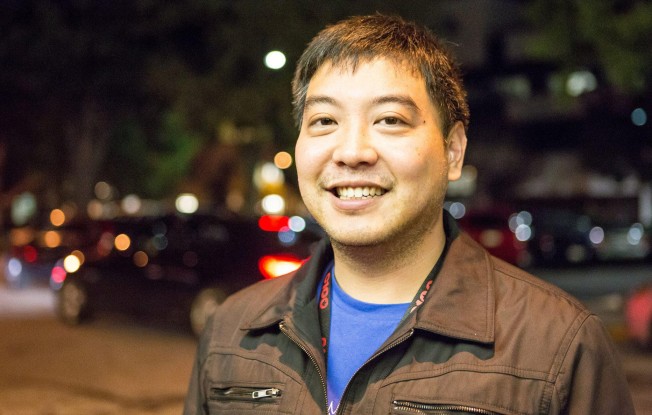Why casinos are doubling down on social gaming
by Christine Wong — Aug 16 '13
by Christine Wong — Aug 16 '13

Vancouver’s BlueBat Games is betting that its new platform will be a big winner for developers in the red hot social gaming sector.
The company’s BlueBox Engine platform allows game developers to integrate social gaming aspects into their online casino offerings. The platform is aimed at land-based and online casino operators who already enjoy an established brand and a loyal player base but now want to extend them to the social gaming sector. That target market includes the biggest players in the Las Vegas casino industry.
“We wanted to be able to bring some of these (casinos) into the social space and leverage some of their brand power,” says BlueBat co-founder and CEO Kenny Huang. “What they’re not tapping into is the billions of people in the social (and) mobile space.”
Huang and his BlueBat co-founder Tim Harris aren’t your typical startup twentysomethings. Huang worked at Electronic Arts from 2005-10, where he oversaw titles in the Vancouver studio’s NFL, Madden, NBA, NHL and FIFA game franchises. In 2011 he and fellow EA staffer Harris launched BlueBat, which was one of five startups accepted into the 2012 GrowLab Accelerator.
Last year they released the game Lucky Bank’s Penny Slots on Facebook to showcase what can be built with their BlueBox Engine platform, which was officially released last month (July 2013.) Instead of charging developers a flat licensing fee for each game developed on the platform, BlueBat will earn revenue per daily active player of each game.
Though Huang and Harris are gaming veterans, as new entrepreneurs they’ve had to learn business basics like fundraising and corporate development. What’s been the toughest lesson they’ve learned?
“Everything!” Huang says. “When we come from a technical background as developers, we don’t understand how hard everything is, we just know the (game) production side of things. The reality is that production is actually the easy part.”
Two-year-old BlueBat now has seven staff and expects to close a $1.2 million seed financing round by the end of September involving Business Development Bank of Canada and B.C.-based E-Fund. Now the push is on to build a customer base for BlueBox Engine.
Besides social features like community building and player identity management, the platform also includes tools for monitoring, analytics, privacy control, user authentication and credit services to manage wagers and reward payouts. It’s platform agnostic, meaning it works with existing online games whether they’re built on Unity, Flash or HTML 5. It also uses API architecture that allows games to be published on multiple social platforms including Android, iOS and Facebook.
Other players offering social gaming platforms include Roar Engine of San Francisco and UK-based Enteraction. Huang says many of BlueBat’s competitors focus on the wider B2C market by basically targeting all social game developers. But he says BlueBat targets a narrower, more strategic B2B niche: land-based casinos and online gambling sites moving into social gaming.
The entire online gaming sector is in the midst of regulatory change and massive growth. Though online and social gambling (which pays winners real money) is legal in much of Europe, it’s still banned in Canada and all U.S. states except four. This ban helped spur the North American rise of online and social gaming, which features virtual rewards (like badges, points or game upgrades) instead of real money payouts.
But in 2011 the U.S. Justice Department ruled that each U.S. state can make its own online gambling laws, paving the way for eventual legalization, state by state. Many U.S. casinos and European gambling websites are now moving into social gaming as a legal way to build their player base in the U.S. until social gambling is legalized across America.
“We see (social gaming) growing from $1.7 billion today to $2.5 billion by 2015 and see it as a rich source of customers that could boost growth rates for real money gambling,” a Morgan Stanley report stated in November 2012.
While social games are poised for huge growth, the game industry overall is in transition. EA announced 900 layoffs in April 2013, including undisclosed numbers in Vancouver and Montreal. Huang says big game studios with deep pockets are now pushing into mobile and social. That’s putting competitive pressure on the startups that dominated those spaces early on – and driving up production budgets for all developers in the process. It’s also leading to a Vancouver gaming scene that’s more tight-knit yet less nearsighted at the same time, Huang says.
“I do see a lot more independent studios popping up, starting to build this community in Vancouver. It’s really good, it’s becoming more of a community rather than competing against one another. You’re not really competing against the guy next door. You’re competing worldwide.”
Christine Wong is a journalist based in Toronto who has covered a wide range of startups and technology issues. A former staff writer with ITBusiness.ca, she has also worked as a reporter for the Canadian Economic Press and in broadcast roles at SliceTV and the CBC.
Twitter LinkedIn Google+
Apr 17 '14

Apr 16 '14

Apr 15 '14

Apr 11 '14
Copyright © 2016 CommerceLab


